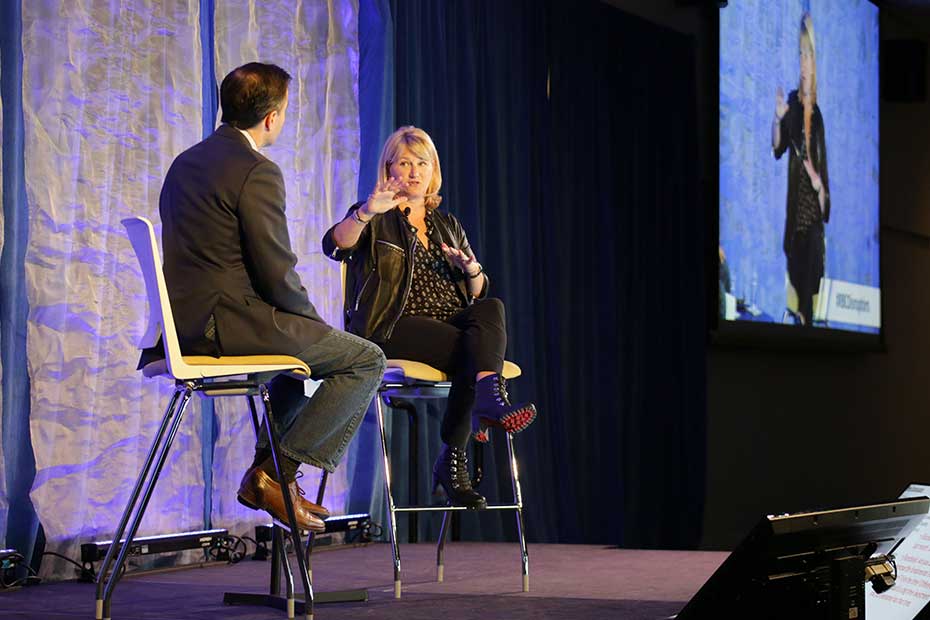Published March 6, 2018 • 6 Min Read
The following are common scams used to gain access to personal and financial data.
Skimming
Skimming is the act of obtaining information from a debit or credit card. Most of this data is obtained with a card reader device when the card is used. The PIN is often obtained separately, usually by someone who is watching or by hidden cameras or sophisticated devices that may be attached to the machine used. Once the magnetic strip data and PIN are obtained, a counterfeit card is produced and then used.
How to Protect Yourself From Skimming
Beware of unauthorized persons asking for your PIN. No law-abiding employee, police officer, financial advisor or lawyer will ever ask you for your PIN.
Always shield the keypad when you enter your PIN at an ATM or point-of-sale terminal. Do not use an ATM that you suspect may have been tampered with. Keep track of your account balance and debits, and report any fraudulent or missing activity immediately. Beware of unauthorized persons asking for your PIN. No law-abiding employee, police officer, financial advisor or lawyer will ever ask you for your PIN. This is strictly confidential information that provides access to the funds in your account. If you are contacted and asked for your PIN, do not respond, either by phone or email. Check that all your cards are in your possession and report any loss immediately. Even if your cards are in your possession, contact the institution the caller is claiming to be from and report the incident.
Fake Charities
If you receive an unsolicited call, asking you to donate to a charitable cause, don’t give your credit card number over the phone or agree to have someone collect a cheque in person.
How to Protect Yourself From Fake Charities
Ask the caller to mail a pledge form to you or take their telephone number, to call them back. Do not return the phone call until you independently verify that the phone number is legitimate.
Card Switching and Shoulder Surfing
While at an ATM, be aware of anyone who tells you that you’ve dropped something or offers to help you enter your PIN. As you stoop to retrieve a dropped item, they may exchange your Client Card for another card. Then, working together, another person standing nearby will attempt to observe you as you enter your PIN so that both your card and your PIN are in their possession.
Learn How to Protect Yourself From Card Switching and Shoulder Surfing
Never let anyone help you enter your PIN. Before you put your card back in your wallet, check the name to ensure it is your card. If it is not, report the incident immediately. Do not use an ATM that looks like it has been tampered with.
Telemarketing Scams
These scams are when you are contacted by a supposed telemarketing firm, claiming that you have won a prize or a trip, but asking for your credit card number, requesting that you purchase a promotional item, or that you pay the taxes for that prize or trip, in order to collect your winnings.
How to Protect Yourself From Telemarketing Scams
Be highly suspicious when receiving voicemail messages directing you to call and provide credit card or bank numbers. These types of scams are called “Vishing”. Rather than provide any information, we advise you to discontinue the call and contact your bank or credit card company directly to verify the validity of the message or the prize.
If you think that you may be involved in a telemarketing scam, contact the authorities.
While at an ATM, be aware of anyone who tells you that you’ve dropped something or offers to help you enter your PIN. As you stoop to retrieve a dropped item, they may exchange your Client Card for another card.
Unusual Requests That Are “Too Good to Be True”
Be suspicious if you are contacted by phone, mail, email or fax and told that you’ve won, inherited or been included in a business venture involving large sums of money.
Also be alerted to another scam, if you are selling personal property (e.g. a car or other goods). A fraudulent person may pose as an interested buyer, pay for the goods with a cheque that’s substantially greater than the asking price, and then call you to request that you return the overpayment. In many cases, the original cheque is stolen, counterfeit or altered and is not returned to RBC until a much later date. You won’t discover there is a problem with the cheque until you have returned the so-called “overpayment.”
Learn More – How to Protect Yourself
Be careful about sending any funds back by cheque or wire transfer. If you are sending a payment via wire, ensure that you are comfortable with your transaction and that you are fully aware of to whom you are sending the funds. If an individual or third party asks you to make a deposit or open an account on their behalf, ensure you are confident of their identity and the validity of their reasons for the request before you do so. Be extremely wary of this kind of request.
Job Scams
Advertising of opportunities to make extra money, earn money from home or make a career move have never been greater. Unfortunately not all employment advertisements are legitimate. Avoid a type of job scam known as a payment-forwarding or payment-transfer scam. Be wary of jobs where you are asked to accept and transfer money from one bank account to another. Often the receiving bank account will be in a different country, and you will be requested to have an account at a specific bank in your country You may be instructed to keep a small percentage of the money being transferred as payment.
The details of this type of scam varies and can be quite clever.
Fraudsters may request a job applicant’s bank account information in order to set up a direct-deposit payment schedule, or they may transfer the funds themselves without the applicant’s knowledge. Fraudsters may steal company names and corporate logos to make their ad or email more convincing. They may also scan for resumes that job seekers have posted online and then contact them directly.
Learn More – How to Protect Yourself
Always ensure any potential employers and requests are legitimate. Be aware of this type of scam. If you transfer money that has been stolen or is being laundered you could be an accomplice to the crime, under the law.
Advance-Fee Scams
Posing as a reputable financial institution by copying its brand and logo, fraudsters promote supposed pre-approved loans and mortgages or unusually high interest rates for investment products. Business is solicited on the strength of the reputation of the financial institution, and money is requested up front to secure the approved credit or high-return investment product.
How to Protect Yourself From Advance–Fee Scams
Always ensure that the institution and offer is legitimate. If you are uncertain, call the institution to verify the offer using the institution’s legitimate phone number that you have independently obtained, not the phone number printed on the suspicious offer.
This article is intended as general information only and is not to be relied upon as constituting legal, financial or other professional advice. A professional advisor should be consulted regarding your specific situation. Information presented is believed to be factual and up-to-date but we do not guarantee its accuracy and it should not be regarded as a complete analysis of the subjects discussed. All expressions of opinion reflect the judgment of the authors as of the date of publication and are subject to change. No endorsement of any third parties or their advice, opinions, information, products or services is expressly given or implied by Royal Bank of Canada or any of its affiliates.
Any information, opinions or views provided in this document, including hyperlinks to the RBC Direct Investing Inc. website or the websites of its affiliates or third parties, are for your general information only, and are not intended to provide legal, investment, financial, accounting, tax or other professional advice. While information presented is believed to be factual and current, its accuracy is not guaranteed and it should not be regarded as a complete analysis of the subjects discussed. All expressions of opinion reflect the judgment of the author(s) as of the date of publication and are subject to change. No endorsement of any third parties or their advice, opinions, information, products or services is expressly given or implied by RBC Direct Investing Inc. or its affiliates. You should consult with your advisor before taking any action based upon the information contained in this document.
Furthermore, the products, services and securities referred to in this publication are only available in Canada and other jurisdictions where they may be legally offered for sale. Information available on the RBC Direct Investing website is intended for access by residents of Canada only, and should not be accessed from any jurisdiction outside Canada.
Share This Article






